THE HOLY FAMILY OF NAZARETH: JESUS, MARY AND JOSEPH
(A biblical reflection on the Feast of THE HOLY FAMILY – Sunday, 31 December 2017)
Gospel Reading: Luke 2:22,39-40 (shorter version)
First Reading: Sirach 3:2-6,12-14; Psalms: Psalm 128:1-5; Second Reading: Colossians 3:12-21; Gospel Reading: Luke 2:22-40 (longer version)
The Scripture Text
And when the time came for their purification according to the law of Moses, they brought Him up to Jerusalem to present Him to the Lord.
And when they had performed everything according to the law of the Lord, they returned into Galilee, to their own city, Nazareth. And the Child grew and became strong, filled with wisdom; and the favor of God was upon Him. (Luke 2:22,39-40 RSV)
Jesus, Mary, and Joseph’s first recorded family outing had a religious purpose. Today’s Gospel talks about two important Jewish religious practices – the purification of a woman after childbirth and the presentation of a male baby in the Temple. Because these two Jewish rituals play an important role in today’s Gospel, we must take a closer look at each of them.
The Purification: The ancient Jewish people believed God was the source of life, using blood as a vehicle to communicate that life to human beings. Therefore, a person who came in contact with blood came in contact with God’s creative power. Since this experience of God set the person apart from the ordinary world, this individual had to undergo a purification before returning to everyday life. This purification, usually a ritual bath, restored the person to “normalcy” before offering sacrifices to God or taking part in religious services.
 Jewish women, therefore, underwent a ritual bath after each monthly period. After childbirth, the woman also offered a year old lamb and a pair of pigeons or turtledoves at her purification. However, if the woman was poor, she offered only the birds. This explain Mary’s offering in today’s Gospel.
Jewish women, therefore, underwent a ritual bath after each monthly period. After childbirth, the woman also offered a year old lamb and a pair of pigeons or turtledoves at her purification. However, if the woman was poor, she offered only the birds. This explain Mary’s offering in today’s Gospel.
The Presentation: When the Jews were slaves in Egypt, God appeared to Moses and told him to lead His people to freedom. When the pharaoh refused to let the Jews go, God punished the Egyptian people with ten plagues, the last being the death of the first born Egyptian male in each family. Because God spared the Jews from this catastrophe, they believed their firstborn sons belonged to God (Exodus 13:11-16) and “ransomed” these sons back with an offering of five shekels (coins). In today’s Gospel, Joseph and Mary fulfill this Jewish laws when they visit the Temple for Mary’s purification.
Today’s Gospel concludes with Joseph and Mary returning with Jesus to Nazareth in Galilee. Galilee, a region within the land of Palestine where most of Jesus’ ministry took place, was a relatively small area, only about forty-five miles long from north to south.
Source: Jerome J. Sabatowich, Cycling Through the Gospels – Gospel Commentaries for Cycles A, B, and C, pages 130-131.)
Prayer: Heavenly Father, to me the Holy Family is a model of religious observance, in prayerfulness and fidelity to God through light and darkness, joy, and sorrow, breaking and growing. Let Your Holy Spirit keep guiding me to become a good disciple of Christ, and to spread His Good News to others I meet. Amen.
Jakarta, 29 December 2017
A Christian Pilgrim
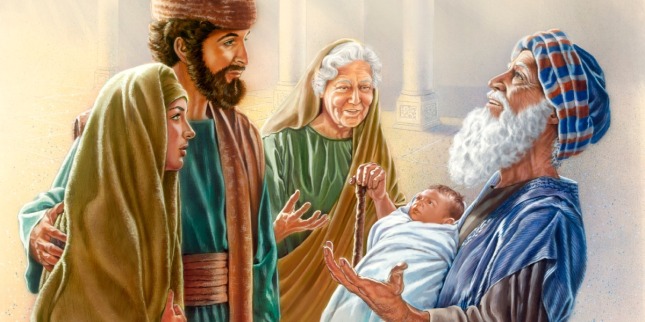
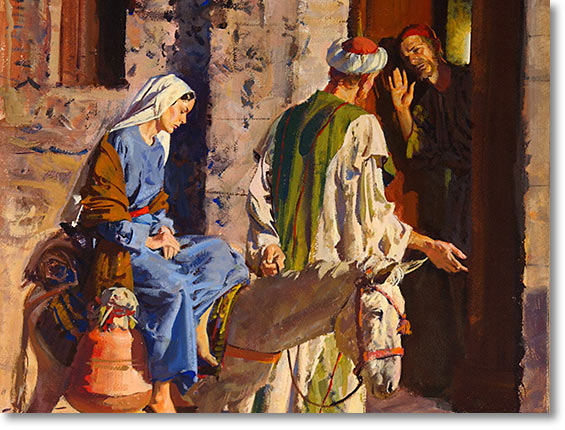




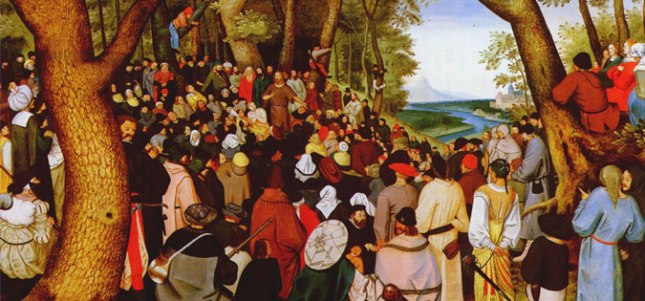

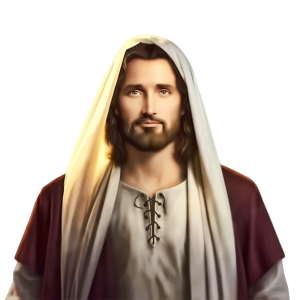
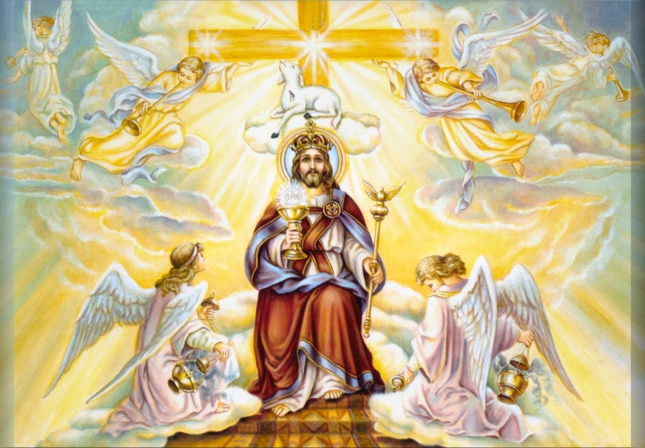




![250px-Gregorythegreat POPE ST. GREGORY THE GREAT [540-604]](https://achristianpilgrim.files.wordpress.com/2015/05/250px-gregorythegreat.jpg?w=132&resize=132%2C186#038;h=186)

![PAUS KLEMENS I - 4 POPE ST. CLEMENT I {PONTIFICATE: ca. 91- ca. 101]](https://achristianpilgrim.files.wordpress.com/2015/05/paus-klemens-i-4.jpg?w=214&resize=214%2C284#038;h=284)
![PAUS KLEMENS V POPE CLEMENT V [PONTIFICATE: 1305-1314]](https://achristianpilgrim.files.wordpress.com/2015/05/paus-klemens-v.jpg?w=241&resize=241%2C284#038;h=284)
![PAUS BONIFACIUS VIII POPE BONIFACE VIII [PONTIFICATE: 1294-1301]](https://achristianpilgrim.files.wordpress.com/2015/05/paus-bonifacius-viii.jpg?w=178&resize=178%2C284#038;h=284)
![PAUS GREGORIUS VII POPE ST. GREGORY VII [PONTIFICATE: 1073-1085]](https://achristianpilgrim.files.wordpress.com/2015/05/paus-gregorius-vii.jpg?w=167&resize=167%2C227#038;h=227)
![POPE PIUS X - 111 POPE ST. PIUS X OFS [PONTIFICATE: 1903-1914]](https://achristianpilgrim.files.wordpress.com/2015/05/pope-pius-x-111.jpg?w=142&resize=142%2C227#038;h=227)
![POPE BENEDICT XV POPE BENEDICT XV [PONTIFICATE: 1914-1922]](https://achristianpilgrim.files.wordpress.com/2015/05/pope-benedict-xv.jpg?w=153&resize=153%2C227#038;h=227)
![POPE PIUS XI POPE PIUS XI OFS [PONTIFICATE: 1922-1939]](https://achristianpilgrim.files.wordpress.com/2015/05/pope-pius-xi.jpg?w=167&resize=167%2C227#038;h=227)
![POPE PIUS XII - 112 POPE PIUS XII [PONTIFICATE: 1939-1958]](https://achristianpilgrim.files.wordpress.com/2015/05/pope-pius-xii-112.jpg?w=304&resize=304%2C413#038;h=413)
![PAUS YOHANES XXIII - 2 POPE ST. JOHN XXIII OFS [PONTIFICATE: 1958-1963]](https://achristianpilgrim.files.wordpress.com/2015/05/paus-yohanes-xxiii-2.jpg?w=333&resize=333%2C413#038;h=413)
![POPE PAUL VI - 100 POPE PAUL VI [PONTIFICATE: 1963-1978]](https://achristianpilgrim.files.wordpress.com/2015/05/pope-paul-vi-100.jpg?w=334&resize=334%2C414#038;h=414)


![KARDINAL RATZINGER - 1 POPE BENEDICT XVI [PONTIFICATE 2005-2013 - RESIGNATION]](https://achristianpilgrim.files.wordpress.com/2015/05/kardinal-ratzinger-1.jpg?w=391&resize=391%2C281#038;h=281)
![Paus Fransiskus upload POPE FRANCIS [PONTIFICATE 2013 - ]](https://achristianpilgrim.files.wordpress.com/2015/05/paus-fransiskus-upload.png?w=175&resize=175%2C202#038;h=202)
![FA NGPBROL DENGAN BURUNG2 ST. FRANCIS OF ASSISI [1181-1226]](https://achristianpilgrim.files.wordpress.com/2015/05/fa-ngpbrol-dengan-burung2.jpg?w=157&resize=157%2C202#038;h=202)
![ST. FRANCIS XAVIER - 008 ST. FRANCIS XAVIER [1506-1552]](https://achristianpilgrim.files.wordpress.com/2015/05/st-francis-xavier-008.jpg?w=161&resize=161%2C202#038;h=202)
![Ignatius of Loyola - 100 ST. IGNATIUS OF LOYOLA [1491-1556]](https://achristianpilgrim.files.wordpress.com/2015/05/ignatius-of-loyola-100.jpg?w=136&resize=136%2C202#038;h=202)
![DAMIEN OF MOLOKAI - 02 ST. DAMIEN OF MOLOKAI [1840-1889]](https://achristianpilgrim.files.wordpress.com/2015/05/damien-of-molokai-02.jpg?w=193&resize=193%2C264#038;h=264)
![ANTONIUS DARI PADUA - 1 ST. ANTHONY OF PADUA - FRANCISCAN [1195-1231]](https://achristianpilgrim.files.wordpress.com/2015/05/antonius-dari-padua-1.jpg?w=258&resize=258%2C264#038;h=264)
![SANTA KLARA DARI ASSISI - 07 ST. CLARE OF ASSISI [1195-1253]](https://achristianpilgrim.files.wordpress.com/2015/05/santa-klara-dari-assisi-07.jpg?w=182&resize=182%2C264#038;h=264)
![SANTA ELISABET DARI HUNGARIA - 09 ST. ELIZABETH OF HUNGARY OFS [1207-1231] - QUEEN](https://achristianpilgrim.files.wordpress.com/2015/05/santa-elisabet-dari-hungaria-09.jpg?w=152&resize=152%2C206#038;h=206)
![ST. LOUIS IX - 01 ST. LOUIS IX OFS - KING OF FRANCE [1215-1270]](https://achristianpilgrim.files.wordpress.com/2015/05/st-louis-ix-01.jpg?w=159&resize=159%2C206#038;h=206)

![FR. MAXIMILIAN KOLBE - 000 ST. MAXIMILIAN KOLBE OFMCONV. [1894-1941; MARTYR OF CHARITY]](https://achristianpilgrim.files.wordpress.com/2015/05/fr-maximilian-kolbe-000.jpg?w=160&resize=160%2C206#038;h=206)
![Childrens-Home-of-the-Immaculate-Heart-baby BLESSED MOTHER TERESA [1910-1997] - FRIEND OF THE POOR](https://achristianpilgrim.files.wordpress.com/2015/05/childrens-home-of-the-immaculate-heart-baby.jpg?w=405&resize=405%2C326#038;h=326)
![therese ST. TERESA OF LISIEUX OCD [1873-1897]](https://achristianpilgrim.files.wordpress.com/2015/05/therese.jpg?w=232&resize=232%2C326#038;h=326)
![John of the Cross 23 ST. JOHN OF THE CROSS OCD [1542-1591]](https://achristianpilgrim.files.wordpress.com/2015/05/john-of-the-cross-23.jpg?w=200&resize=200%2C200#038;h=200&crop=1)
![St.-Teresa-of-Avila ST. TERESA OF AVILA OCD [1515-1582]](https://achristianpilgrim.files.wordpress.com/2015/05/st-teresa-of-avila.jpg?w=150&resize=150%2C200#038;h=200)
![SANTA FRANSISKUS DARI SALES ST. FRANCIS DE SALES [1567-1622]](https://achristianpilgrim.files.wordpress.com/2015/05/santa-fransiskus-dari-sales.jpg?w=150&resize=150%2C200#038;h=200)
![ST. CATHERINE LABOURE - 06 ST. CATHERINE LABOURE [1806-1876]](https://achristianpilgrim.files.wordpress.com/2015/05/st-catherine-laboure-06.jpg?w=129&resize=129%2C200#038;h=200)
![ST. BERNARDUS DARI CLAIRVAUX - 11 ST. BERNARD OF CLAIRVAUX [1090-1153] - FOUNDER OF THE OCSO](https://achristianpilgrim.files.wordpress.com/2015/05/st-bernardus-dari-clairvaux-11.jpg?w=355&resize=355%2C397#038;h=397)





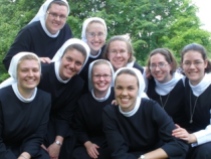












![JACOBA OF SETTESOLLI JACOBA OF SETTESOLLI [+ 1239]](https://achristianpilgrim.files.wordpress.com/2015/05/jacoba-of-settesolli1.jpg?w=227&resize=227%2C276#038;h=276)
![RAYMUNDUS LULLUS - 1 BLESSED RAYMOND LULL OFS [1236-1314]](https://achristianpilgrim.files.wordpress.com/2015/05/raymundus-lullus-1.jpg?w=339&resize=339%2C396#038;h=396)
![ST. CLARE OF ASSISI - 17 ST. CLARE OF ASSISI [1195-1253]](https://achristianpilgrim.files.wordpress.com/2015/05/st-clare-of-assisi-17.jpg?w=298&resize=298%2C396#038;h=396)

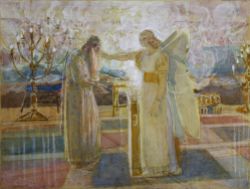


![ANNUNCIATION - MARIA DIBERI KABAR OLEH MALAIKAT TUHAN -1001 ANNOUNCEMENT OF THE BIRTH OF JESUS [2]](https://achristianpilgrim.files.wordpress.com/2018/10/annunciation-maria-diberi-kabar-oleh-malaikat-tuhan-1001.jpg?w=243&resize=243%2C294#038;h=294)

![VISITATION - 9 MARY VISITS ELIZABETH [2]](https://achristianpilgrim.files.wordpress.com/2018/10/visitation-9.jpg?w=394&resize=394%2C291#038;h=291)
